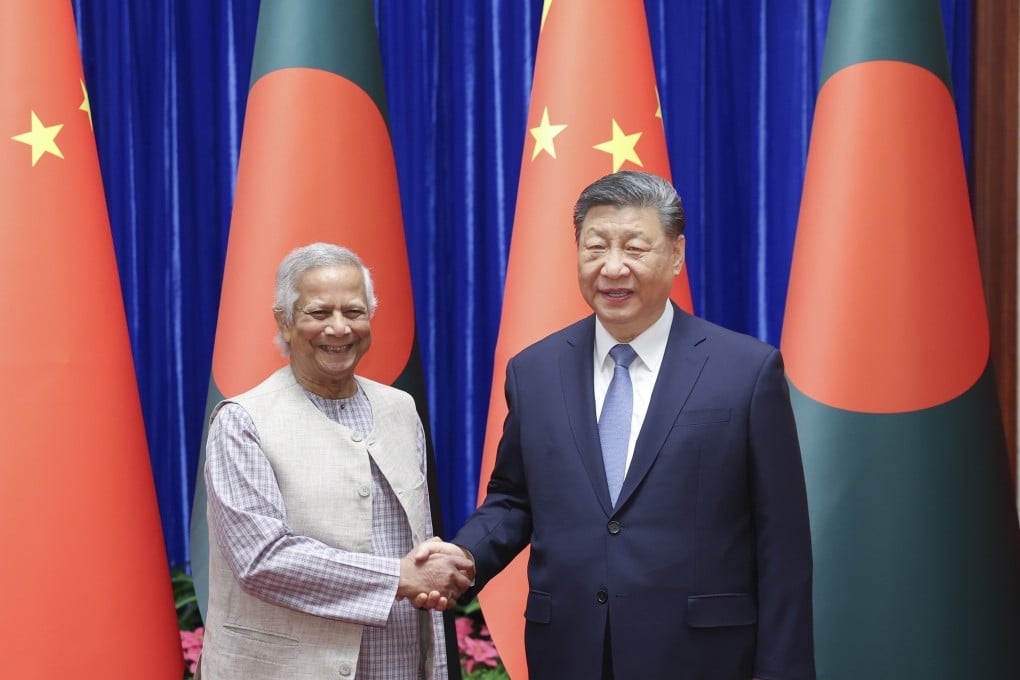What Yunus’ China trip means for Bangladesh-India ties: ‘deep optics’
While Bangladesh’s flags flew high, commemorating a liberation forged with Indian blood, its interim leader was in China sealing deals

“It’s very important that we see China as our good friend,” Yunus told reporters during his visit. “Our relationship has been very strong over the years. Our business is very strong, and we benefit from our collaboration with China.”
The trip, however, has fuelled speculation that Bangladesh is recalibrating its foreign policy, tilting away from its historic ally India and looking northward to Beijing. Yunus’ presence in China – instead of delivering a speech to the Bangladeshi people on independence day – is being seen by some as a calculated move to strengthen ties with the economic powerhouse, even as relations with India remain strained.